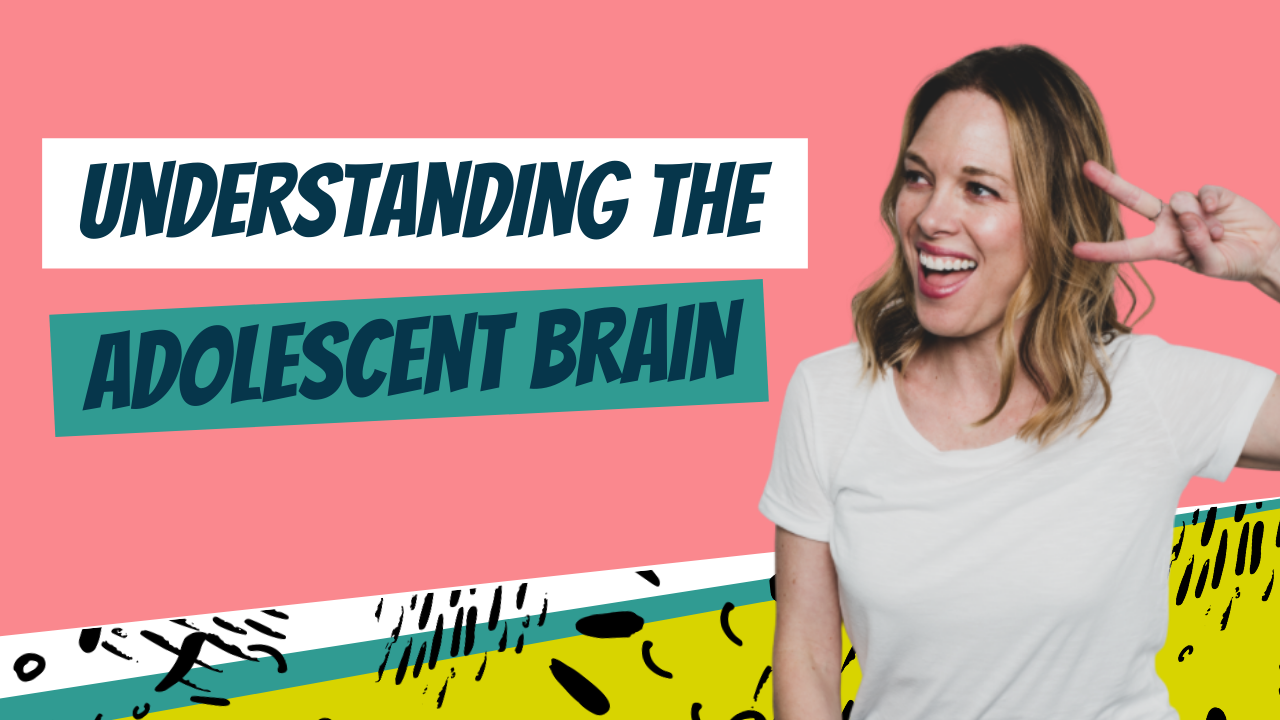Why Perfection is Less Than Perfect - the very real effects of perfectionism on your middle schooler

Ok, picture this: there is a big project coming up for your middle schooler, one they have to research and create a presentation for. They have two ways of approaching it: 1)They work at it a little bit at a time, asking for help when they get stuck and know this is the first time they've done something like this and they will have room to improve, or 2) They set high expectations for themselves and want to knock it out of the park on the first try, but they don't know where to start so they don't, then it's a big scramble a couple of days before the project is due and they feel overwhelmed, angry, stressed, or that they've failed before they've even begun.
If the second way of doing things sounds a lot like how your middle schooler would react, there is a chance they could be a suffering perfectionist. Perfectionism gets a lot of buzz in our society and the traits associated with it are often highly sought after and rewarded. These traits are dedication, hard work, achievement, self-motivation, and drive. But, what doesn't get talked about as often is the very real and very destructive shadow of perfectionism. More young people today have perfectionist tendencies and while it's good to cultivate the positives of the trait, striving for perfection can take a toll on your middle schooler's mental health and overall success in school and in life. Today I'll cover:
-
What perfectionism is
-
The negative effects of perfection
-
What perfectionism has to do with your middle schooler
-
How you can combat perfectionistic tendencies and cultivate compassion
What is perfectionism?
Perfectionism is fueled by internal pressure and the desire to avoid failure. At times, this can lead to positive outcomes such as achievement and self-motivation, but more often than not, perfectionistic traits lead to a destructive mentality about one's self-worth. In the last 30 years, perfectionist tendencies have increased in young people, which is likely the result of higher academic pressure and the prevalence of social media. Kids with perfectionist traits often set unrealistic expectations for themselves or believe that they are expected to be perfect for others. When taken too far, it can lead to a cycle of toxicity and start to get in the way of school and relationships.
The negative effects of perfectionism and how it relates to adolescence
Countless studies have been done on perfectionism and its negative effects, and scientists have found that perfectionism is linked with more psychological disorders than any one common trait. Meaning, more often than not, perfectionism is a common trait among people who suffer from a variety of mental health issues. To be clear, perfectionism itself is not a mental illness but its negative traits can lead to an increase in other mental disorders and maladaptive behaviors such as anxiety, depression, suicidal ideation, OCD, eating disorders, etc.
Oftentimes people think of a perfectionist as someone who is dedicated, hard-working, skilled, and effective, but in reality, those "positive traits" are a symptom of perfectionism. In fact, those traits, some scientists argue, aren't what perfectionism is at all. What perfectionism really is, is someone with a highly critical inner voice and unrealistic expectations of themselves. If the person's ability can keep up with their expectations then you get someone who works hard and achieves their goals. But if their ability does not meet expectations or they burn out, then that person can become destructive to themselves.
In a study done by Andrew Hill from St. John's University, he found that when faced with failure, perfectionists will respond more harshly and experience more guilt, shame, and anger towards themselves. They also tend to give up more easily or cope by avoiding the task altogether. Hill said, "Perfectionism isn't a behavior. It's a way of thinking about yourself."
The biggest difference between a perfectionist and a non-perfectionist is what their inner voice sounds like. On the outside, they may look similar for a time, but when they are faced with the ups and downs of life, the difference becomes very obvious. Someone with a healthy inner critic would see something like a bad grade and say, "I'm disappointed, but that's okay. I know what I need to do next time." Where someone who has perfectionist tendencies would say, "I am a failure and I'm not good enough. There is something wrong with me." You can imagine how that can be destructive to your adolescent at a time when they are forming their independent identity and learning how to be themselves in the world. If they don't have a strong or kind inner voice, then setbacks and mistakes begin to feel like an earthquake instead of a small hurdle.
Maybe you're reading this and already have a feeling that your middle schooler exhibits some perfectionistic traits, or maybe you think they could but you're not sure if it's just the stress of the past two years that's been making them feel overwhelmed. Either way, here is a short checklist of common traits and reactions of someone who suffers from perfectionism.
-
Expects a lot of themselves
-
Sets unrealistic expectations
-
Reacts with anger, guilt or, shame when faced with failure or mistakes
-
Overreacts to setbacks
-
Talks critically of themselves or others
-
Nothing is ever "right" or "good enough"
-
Procrastinates in order to avoid failing
-
Identity and achievement are heavily connected
Do any of these sound like your middle schooler? Or you? Even just a little bit? Well, I'm here to tell you that perfectionist traits are not an end-all-be-all! I believe that we all have at least some traits of perfectionism. That inner voice is there for a reason and can actually help us achieve our goals in a healthy way. And there are things that you can do for yourself and your middle schooler that will help promote a healthy relationship with achievement and failure.
Supporting your middle schooler to promote compassion instead of criticism
The #1 thing that all parents can do for their middle schoolers is be an example. If you think that you tend to strive for perfection or set unrealistic expectations for yourself, then it's time to take a look at what that behavior could be teaching your adolescent. Show them how being human means not being perfect and that's ok. Striving towards perfection robs your kid of the opportunity to see how a loving, growing adult can make mistakes and do the work to repair them.
So, the first step in combating perfectionism in your middle schooler is to address it in yourself. Repairing mistakes, taking ownership, apologizing, sharing the process, and changing behavior alongside them are some of the shiniest gems you can ever give your adolescent. Here are some other shiny gems:
Self-compassion is the antidote for perfectionism.
When you or your adolescent do make mistakes, be kind and don't criticize or judge the mistake. Instead, practice a more compassionate way of talking about it. "I didn't do that very well, but that's ok. I know what I need to do to fix it and I believe in myself to do the right thing next time." For whatever reason, compassion is a hard thing to feel for oneself, so practice by feeling understanding and kind with your middle schooler. Then, you can turn that feeling towards yourself.
Mistakes don't mean anything about who you are as a person or even your ability to achieve something.
Every success story starts with setbacks, challenges, mistakes, and failures. Make sure your middle schooler understands that in order to go after their dreams or to do well at anything, there is always a learning curve. Mistakes are the building blocks to success. We wouldn't know how to get it right if we didn't know what to avoid in the future.
Challenge destructive or "all or nothing" thinking.
There is a lot about adolescence that can feel like all or nothing and honestly it's hard to avoid altogether at this age. But you can help your middle schooler see that life and the way it goes isn't always black and white. Share a story with them about a time that you felt like things were doomed but it ended up being a blessing in disguise. Keep challenging the urge to self-destruct by being present to the challenge they are facing and how it feels to them at that moment, and show them proof of the light at the end of the tunnel. Find examples that dispel their beliefs about themselves and their worthiness.
Encourage them to change their perspective.
Life happens outside of your comfort zone. Seeing things from a different point of view always helps to create clarity. Encourage your middle schooler to see things in a different way. Ask leading questions like, "What would you tell a friend going through this same thing?" or if they're being overly critical of themselves ask, "If someone else (friend, teacher, mom/dad) were to say that to you, how would you feel? What would you think about it?" Get them to see the bigger picture and that small mistakes or setbacks won't mean anything to the overall goal they might have. You could even have them talk to people they look up to and ask questions about their experiences with "failure". Anything to let them know that their feelings and experiences are universal.
It can be tough to be gentle with yourself, especially when you have an expectation of how you want things to go or look like or feel like and the reality just isn't that. But when you can come from a place of compassion and understanding, and be an example you can help your middle schooler do the same.
Listen to the Elevated Adolescence Podcast for more gems on being a parent of an early adolescent!
Ready to Transform Your Parenting?
Grab my done-for-you Teenage Guide and start seeing real changes today! Click below to get yours now.
Don't Parent Alone—Join My VIP Email List!
Get exclusive parenting tips, free resources, and special updates straight to your inbox. No fluff—just real, actionable advice to help you navigate parenting with confidence!
By subscribing, you agree to receive ongoing updates




